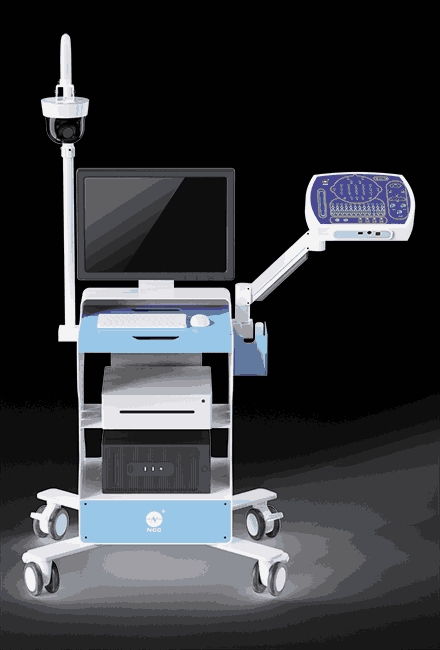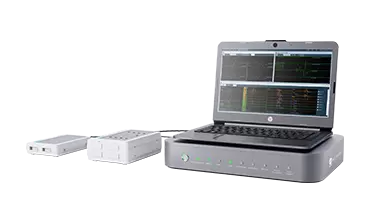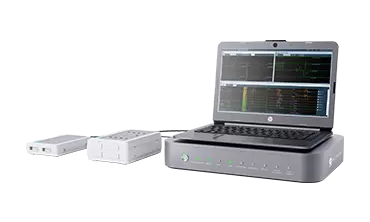Understanding Adhesive Laryngeal Electrodes: Key Features and Benefits
Adhesive laryngeal electrodes are specialized medical devices designed to monitor and assess vocal cord function during surgical procedures. These electrodes play a crucial role in intraoperative neuro-monitoring, helping to reduce the risk of nerve damage and ensuring the integrity of nerve function. At NCC, we are committed to providing advanced solutions for surgical safety, including our innovative adhesive laryngeal electrodes integrated within the Cynapse System. This article will explore the key features and benefits of adhesive laryngeal electrodes, emphasizing their importance in modern surgical practices.

What Are Adhesive Laryngeal Electrodes?
Adhesive laryngeal electrodes are thin, flexible electrodes that adhere to the surface of the vocal cords. They are used primarily during surgeries involving the neck or throat, such as thyroidectomies or laryngectomies. By monitoring electrical signals from the vocal cords, these electrodes provide real-time feedback on nerve function, allowing surgeons to make informed decisions during procedures.
Key Features of Adhesive Laryngeal Electrodes
1. Ultra-Thin Design
One of the standout features of our adhesive laryngeal electrodes is their ultra-thin profile, measuring only 0.08 mm in thickness. This design minimizes discomfort for patients while ensuring effective contact with the vocal cords. The thinness also allows for better maneuverability and placement during surgery.
2. Enhanced Connectivity
The design of adhesive laryngeal electrodes ensures less space is required for installation, resulting in better connection with fully covered vocal cords. This feature is critical for obtaining accurate readings and maintaining effective communication between the monitoring system and the surgical team.
3. Advanced ENIG Technology
Our electrodes utilize ENIG (Electroless Nickel Immersion Gold) technology, which enhances electrical conductivity and provides excellent oxidation resistance. This technology ensures that the electrodes maintain their performance over time, offering a long service life even in challenging surgical environments.
4. Multiple Channel Capability
The NCC Cynapse system supports up to 4 channels for monitoring, allowing for comprehensive assessments of vocal cord function. This multi-channel capability enables surgeons to monitor multiple parameters simultaneously, improving surgical outcomes by providing a complete picture of nerve function.
5. Flexible Configuration
The NCC Cynapse system offers flexible configurations for various measurement modalities, including EMG (Electromyography), MEP (Motor Evoked Potentials), SEP (Somatosensory Evoked Potentials), EEG (Electroencephalography), BAEP (Brainstem Auditory Evoked Potentials), and VEP (Visual Evoked Potentials). This versatility makes it suitable for different types of spinal surgeries and other procedures where nerve monitoring is critical.
Benefits of Using Adhesive Laryngeal Electrodes
1. Reduced Risk of Nerve Damage
By providing real-time feedback on vocal cord function, adhesive laryngeal electrodes significantly reduce the risk of nerve damage during surgery. Surgeons can adjust their techniques based on the data received from the electrodes, leading to safer procedures and better patient outcomes.
2. Improved Surgical Precision
The ability to monitor nerve function continuously allows for greater precision during delicate surgeries involving the throat and neck. Surgeons can make informed decisions based on objective data, minimizing potential complications.
3. Enhanced Patient Safety
With effective monitoring in place, patients experience increased safety during surgery. The use of adhesive laryngeal electrodes helps ensure that critical functions are preserved throughout the procedure, leading to faster recovery times and fewer postoperative complications.
4. User-Friendly Integration
The NCC Cynapse system is designed for easy integration into existing surgical workflows. The electrodes are straightforward to apply and connect to the monitoring system, allowing for seamless operation during procedures.
5. Long-Term Reliability
Thanks to advanced materials and technologies like ENIG, our adhesive laryngeal electrodes offer long-term reliability and performance. Surgeons can trust that they will receive accurate readings throughout the duration of the surgery.
Conclusion
Adhesive laryngeal electrodes are an essential tool in modern surgical practices, particularly for procedures involving the neck and throat. Their ultra-thin design, enhanced connectivity, and advanced technology make them invaluable for monitoring vocal cord function and preserving nerve integrity during surgery.
At NCC, we are dedicated to improving surgical outcomes through innovative solutions like our adhesive laryngeal electrodes integrated into the Cynapse system. By prioritizing patient safety and providing surgeons with reliable data, we help ensure that every procedure is performed with precision and care.
If you have any questions about our adhesive laryngeal electrodes or would like more information about how they can enhance your surgical practice, please contact us today! Let NCC support you in delivering safe and effective patient care with our cutting-edge technology!

 中文
中文 Arabic
Arabic Spanish
Spanish Hindi
Hindi French
French Indonesian
Indonesian Portuguese
Portuguese Persian
Persian Russian
Russian Korean
Korean German
German Vietnamese
Vietnamese Turkish
Turkish



